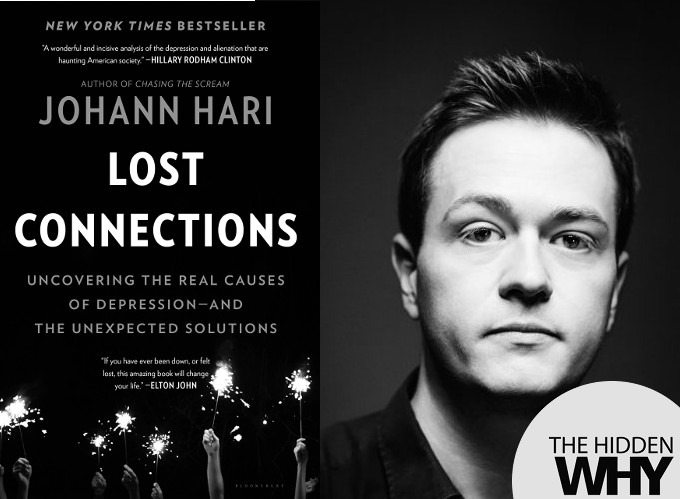What’s it about?
Lost Connections
explores the true causes of depression and anxiety, challenging the “chemical imbalance” theory and uncovering nine real reasons behind emotional distress. Johann Hari shares personal stories, research, and the voices of leading experts to show how our modern way of living—disconnection from meaningful work, community, nature, and purpose—can leave us feeling empty, and what we can do to reconnect.
Book Review: Lost Connections

by Johann Hari
Published: January 11, 2018
Review published: September 2, 2025
What I Learned / My Take
1. As someone who has faced many negative experiences in the years before feeling down, this book hit home for me. Johann Hari shows that depression doesn’t just come out of nowhere—it often builds up from a series of stressful or traumatic events, especially when you don’t have positive, stabilizing things in your life.
2. The book highlights that strong relationships—like having good friends, supportive parents, a partner, or kids—can massively reduce your chances of developing depression. People in poverty are more likely to become depressed, not because of who they are, but because they deal with more long-term stress, experience more negative life events, and often have fewer stabilizers to hold on to.
3. I was especially struck by the story of a woman who told Hari: “I have everything most women want—a fancy car, a big house, a good husband, two healthy kids—but I still feel anxious.” This made me realize how the standard image of a “successful” modern, wealthy family is often wrong or misleading. Society tells us that achieving these things should guarantee happiness and mental health, but the truth is that even when you “have it all” on paper, you can still feel lost, anxious, or disconnected. Real well-being comes from genuine connection, meaning, and emotional support—not just from material success.
Scenes and Images that Stuck with Me:
- Walking in nature, I could feel my ego shrinking—a deep sense that I am very small and the world is vast. Hari captures that feeling of humility and perspective that only comes from being present in the natural world.
- When Hari suffered food poisoning and asked the doctor to stop the nausea, the doctor refused, saying: “You need your nausea. It is a message. It will tell us what is wrong with you.” This moment really captured how our pain can be a signal—not just something to be silenced, but something to learn from.
- One scene haunts me: Hari meets a middle-aged man, sitting alone in a cheap motel room, quietly rocking on the edge of his bed with the TV glowing in the background, his jaw broken after a fight with his stepson. Hari wants to ask, “Don’t you have any friends? Isn’t there anyone who can help you?” But it’s painfully clear the man has nobody—no one to lean on, no support. So he sits there, crying softly into his broken jaw. This image perfectly shows how isolation deepens our suffering.
Would I recommend it?
Absolutely—especially for anyone curious about mental health, happiness, or how to build a more meaningful life. This is a book I’ll be thinking about for a long time.